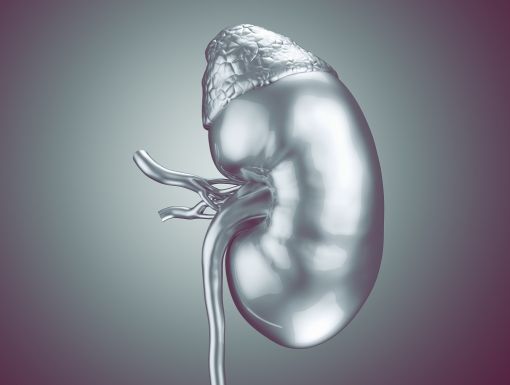
What is the Cause of Kidney Failure, and How Can I Prevent It?
Your two kidneys are bean-shaped organs located in the lower back region, on each side of the spine. About the size of a computer mouse, they filter blood and remove toxins from the body in urine. In doing so, the kidneys help control blood pressure, stimulate production of red blood cells, help generate active vitamin D, maintain healthy bones and regulate blood chemicals.
Healthy kidneys are necessary to maintain a stable balance of body chemicals. When they don’t work properly, waste materials and extra water build up in your body. It’s an all-too-common problem. About 37 million people in the United States have what is referred to as chronic kidney disease, according to the National Kidney Foundation.
Chronic kidney disease has five stages, ranging from mild damage referred to as stage 1 kidney disease to near complete kidney failure in stage 5.
If your kidney function drops below 15 percent of normal, you are said to have stage 5 kidney failure, or end-stage renal disease.
Symptoms and causes
Early-stage kidney disease often does not cause noticeable symptoms. The Centers for Disease Control reports that up to 90 percent of people with chronic kidney disease don’t know they have it. As the disease progresses, symptoms may include:
- More frequent bathroom trips or a reduced amount of urine
- Swelling of your legs, ankles and feet from retention of fluids caused by the failure of kidneys to eliminate water waste
- Fatigue
- Swelling, especially around your hands or ankles
- Muscle spasms
- Dry or itchy skin
- Poor appetite or metallic taste of food
- Nausea
Not all patients with kidney disease progress to kidney failure, although chronic kidney disease usually gets worse over time.
The two main causes of kidney disease are diabetes and high blood pressure. Together, they represent three out of every four new cases, according to the CDC.
Diabetes that is not properly managed can lead to out-of-whack blood sugar levels. Consistently high blood sugar can damage the kidneys as well as other organs. Diabetic-related kidney disease progress over time and stands as the No. 1 cause of kidney failure. With high blood pressure, blood moves through blood vessels with increased force. Over time, untreated high blood pressure can cause damage to the kidneys’ tissue.
Family history of kidney problems, heart disease, liver failure and obesity are also risk factors for kidney disease.
Diagnosis and treatment
Typically, kidney failure does not happen overnight. If kidney disease is detected early, it can be slowed before the kidney function completely shuts down. Early treatment includes diet; exercise; medications; avoiding medications that can affect the kidneys, such as ibuprofen, Aleve, and Motrin; lifestyle changes; and treating risk factors, such as diabetes and hypertension.
The kidney foundation recommends two simple, quick and inexpensive tests for kidney disease:
- A kidney damage urine albumin-creatinine ratio (uACR) test measures the amount of protein called albumin in your urine. Damaged kidneys leak protein into your urine.
- A kidney function blood test, creatinine, is used to measure your glomerular filtration rate (GFR), which tells how what percent of your kidneys are working to remove wastes from your blood. It is the best way to check kidney function.
If left untreated over time, chronic kidney disease can progress to kidney failure. Once kidneys fail, treatment with dialysis or a kidney transplant is needed.
Dialysis comes in two forms: hemodialysis or peritoneal dialysis. Both forms remove wastes and extra fluid from your blood. Patients typically receive hemodialysis three to four times a week, either at home or at a dialysis center. This process involves pumping your blood through a dialysis machine, where it is cleaned and returned back to your body. With peritoneal dialysis, your blood is cleaned inside your body daily through the lining of your abdomen using a special fluid that is periodically changed. The advantage of peritoneal dialysis is that it can be done at home with the help of dialysis machine. The machine will automatically help exchange the fluid in your abdomen. It is important to take good care of the dialysis access on one of the arms for hemodialysis or the catheter in the abdomen for peritoneal dialysis to prevent infections.
Patients on dialysis might need periodic Iron infusions and erythropoietin injections to maintain blood levels. It’s important to monitor calcium and phosphorous levels to maintain bone health in patients with chronic kidney disease and on dialysis
A kidney transplant involves surgically placing a healthy kidney into your body from a deceased or a living donor. People can live well with one kidney as long as that one kidney is functioning properly. A kidney transplant, however, is a treatment, not a cure. Antirejection and other medications are needed to maintain the transplant.
The kidney foundation reports that while about 100,000 Americans are on the waiting list for a kidney transplant, only 22,817 received one in 2020. Twelve people die every day while waiting for a new kidney. Hence, we emphasize that organ donation saves lives.



